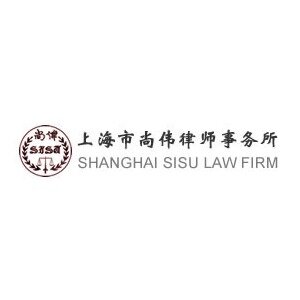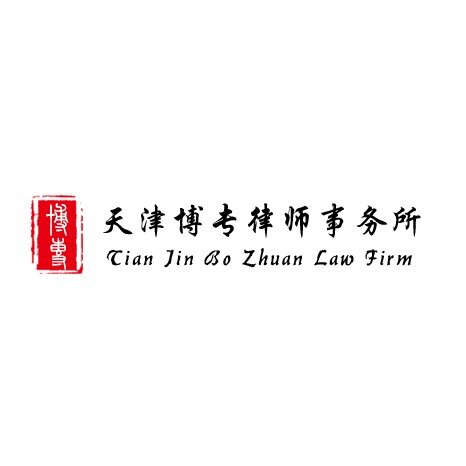Best Climate Change Law Lawyers in China
Share your needs with us, get contacted by law firms.
Free. Takes 2 min.
Or refine your search by selecting a city:
List of the best lawyers in China
About Climate Change Law in China
Climate Change Law in China refers to a broad system of regulations, policies, and legal frameworks aimed at addressing the causes and impacts of climate change within the country. China, as one of the world’s largest greenhouse gas emitters and a key participant in global environmental discussions, has adopted a range of legislative and administrative measures focused on reducing emissions, promoting cleaner technologies, and adapting to the effects of climate change. These laws influence how businesses operate, how governments carry out environmental protection, and how individuals and organizations can contribute to national and international climate goals.
Why You May Need a Lawyer
Expert legal guidance is often essential in navigating the complex and evolving field of Climate Change Law in China. You might need a lawyer if:
- You operate a business facing regulatory requirements related to emissions, energy use, or environmental impact assessments.
- You are involved in a dispute or investigation concerning compliance with climate-related regulations.
- You are participating in government or international climate projects or seeking to enter the carbon trading market.
- You face penalties or enforcement actions from local or national environmental authorities.
- You want to understand your rights and obligations under new laws or seek guidance on contributing to China’s climate goals.
A lawyer can help interpret complex legal documents, represent you in administrative proceedings, manage compliance programs, or defend your interests in court.
Local Laws Overview
China’s Climate Change Law landscape is built on a combination of statutes, administrative regulations, policies, and international commitments. Key components include:
- The Climate Change Response Law (adopted in early 2024) provides a legal foundation for climate policy, emission reduction targets, and adaptation strategies.
- The Environmental Protection Law and Atmospheric Pollution Prevention and Control Law outline obligations for air quality and pollution control, including carbon and greenhouse gas limits.
- The National Carbon Emissions Trading System (ETS) regulates how certain industries can buy and sell carbon quotas, setting limits on total emissions for sectors like power generation and heavy industry.
- Local and provincial governments may enforce stricter climate action plans or environmental standards alongside national laws.
- China’s international climate commitments, such as the Paris Agreement, influence local regulatory approaches and reporting requirements.
Strict enforcement and regular updates to policies mean that staying compliant often requires continuous legal and technical monitoring.
Frequently Asked Questions
What is the main purpose of Climate Change Law in China?
The law aims to reduce greenhouse gas emissions, promote sustainable development, support clean energy, protect the environment, and fulfill China’s commitments under international agreements like the Paris Agreement.
Who must comply with China’s Climate Change Law?
Both individuals and organizations, including businesses in industries such as energy, manufacturing, transportation, and construction, must comply with relevant regulations. Local governments and public agencies are also obligated to implement climate-related measures.
What are the penalties for violating climate-related regulations?
Penalties may include fines, suspension of business operations, mandatory corrective actions, or in severe cases, criminal liability for responsible individuals.
How does China’s carbon emissions trading system work?
Designated sectors are assigned emission caps. Companies exceeding their caps must purchase additional allowances from those under the limit, creating a market incentive to reduce emissions.
Can foreign companies participate in emission reduction initiatives?
Yes, foreign-invested entities operating in China are subject to the same regulatory requirements and may participate in government climate programs or carbon markets, depending on their sector and local rules.
Are there incentives for adopting clean energy technologies?
Yes, the government offers subsidies, tax breaks, and special support for businesses and projects investing in renewable energy and low-carbon technologies.
How are climate laws enforced?
Enforcement is handled through administrative inspections, monitoring, and reporting schemes. Regulatory authorities at both the national and local level have power to impose penalties for non-compliance.
Is there public participation in climate law policymaking?
Yes, public consultation processes are sometimes held when drafting major policies or standards, allowing for input from experts, enterprises, and the general public.
What role do courts play in climate change disputes?
Courts can hear cases involving environmental damage, non-compliance, or administrative actions related to climate regulations. Specialized environmental courts exist in some regions of China.
How can I stay updated on new climate laws and policies?
Frequent monitoring of announcements from national agencies, local governments, and relevant industry groups is important. Legal counsel and consultants can also provide timely updates.
Additional Resources
Several organizations and government bodies provide valuable information and assistance regarding Climate Change Law in China:
- Ministry of Ecology and Environment (MEE) - The central authority in charge of climate policy, regulation, and enforcement.
- National Center for Climate Change Strategy and International Cooperation (NCSC) - Provides research, policy analysis, and technical support on climate issues.
- China Emissions Exchange - Main marketplace for carbon trading and related information.
- Local environmental protection bureaus - Offer guidance on local regulations and compliance requirements.
- Academic and legal research centers - Many universities and think tanks publish accessible reports and legal guides about climate law in China.
Next Steps
If you believe you need legal assistance with Climate Change Law in China, consider the following steps:
- Identify your specific legal concerns or compliance issues related to climate regulations or projects.
- Gather relevant documents, such as permits, notices, inspection reports, or contracts affected by climate law.
- Contact a qualified lawyer or law firm with experience in environmental or climate change law in China.
- Consult with your lawyer to assess legal risks, develop a compliance plan, or prepare to respond to government actions.
- Stay informed about new laws, standards, and enforcement trends that may impact your obligations.
Professional legal advice can help you proactively manage compliance, avoid penalties, and participate in China’s growing efforts to address climate change.
Lawzana helps you find the best lawyers and law firms in China through a curated and pre-screened list of qualified legal professionals. Our platform offers rankings and detailed profiles of attorneys and law firms, allowing you to compare based on practice areas, including Climate Change Law, experience, and client feedback.
Each profile includes a description of the firm's areas of practice, client reviews, team members and partners, year of establishment, spoken languages, office locations, contact information, social media presence, and any published articles or resources. Most firms on our platform speak English and are experienced in both local and international legal matters.
Get a quote from top-rated law firms in China — quickly, securely, and without unnecessary hassle.
Disclaimer:
The information provided on this page is for general informational purposes only and does not constitute legal advice. While we strive to ensure the accuracy and relevance of the content, legal information may change over time, and interpretations of the law can vary. You should always consult with a qualified legal professional for advice specific to your situation.
We disclaim all liability for actions taken or not taken based on the content of this page. If you believe any information is incorrect or outdated, please contact us, and we will review and update it where appropriate.
Browse climate change law law firms by city in China
Refine your search by selecting a city.
















